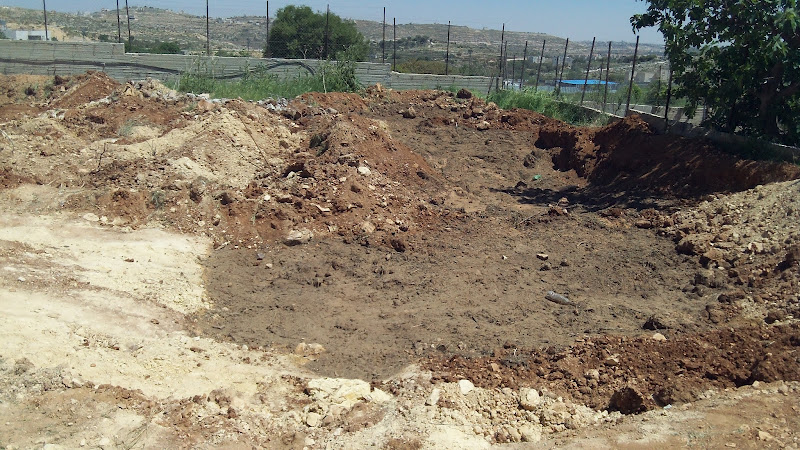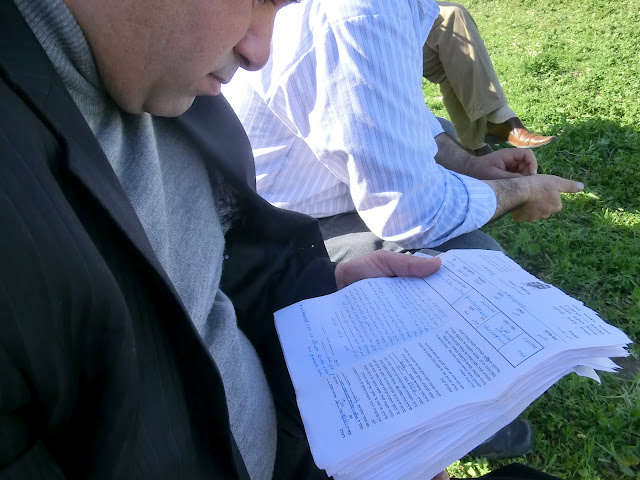Tag: Water
-
The right to water: Water cistern demolitions in Hebron area
by Joseph 23 April 2012 | International Solidarity Movement, West Bank On Monday April 23, 2012, the Israeli occupation forces destroyed four water cisterns outside of the city of al-Khalil (Hebron). Two of the destroyed cisterns were located in the Abweire area, a small agricultural neighborhood of 400-500 residents northeast of al-Khalil. The other two…
-
Settlers grab Palestinian water springs: U.N. report
by Jihan Abdallah 19 March 2012 | Reuters (Reuters) – Jewish settlers have seized dozens of natural springs in the occupied West Bank, barring Palestinians or limiting their access to scarce water sources, a United Nations report said on Monday. The U.N. Office for the Coordination of Humanitarian Affairs (OCHA) said it had surveyed 530…
-
Tubas: Israel robs the Jordan Valley dry
by Jonas Weber 8 February 2012 | International Solidarity Movement, West Bank On Saturday 5 February a delegation of activists from the International Solidarity Movement (ISM) went on a tour in the municipality of Tubas, 30 minutes by car to the south east of Nablus. At the municipality building of Tubas we were greeted by Marwan E. Toubassi,…



